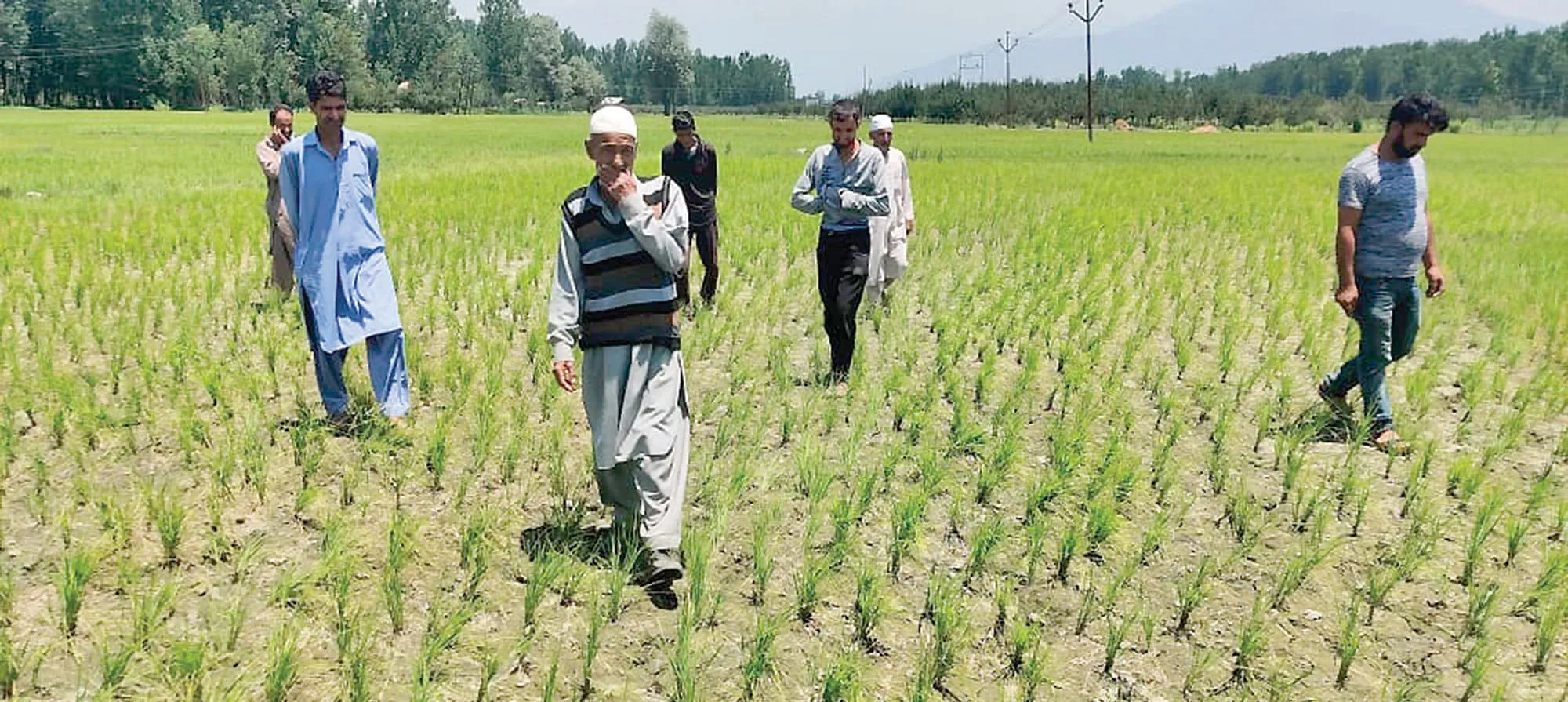Pulwama: The defunct irrigation schemes in Pulwama villages of south Kashmir are drying up paddy saplings planted over hundreds of kanals of land.
Locals fear that the situation might lead to drought in the area and affect thousands of families.
The residents of Renzipora, Gulzarpora, Wandakhpora, Kawoosibagh, Badibagh, Banderpora, Hakripora, Hasanwuni, Tulsibagh, Reshipora, Wakharwan and Baderwan are unable to irrigate their fields due to unavailability of water.
According to residents of Hasanwuni, the irrigation plant got damaged due to soil erosion but since then the canals connecting the plant with fields was dry drying up the fields completely.
“The situation is leading towards drought and we might face starvation,” locals said.
According to residents of Renzipora, the irrigation canals mostly remain dry during the peak season.
“We faced the same situation last year but the Irrigation department didn’t come to our rescue,” said Abdul Gaffar, a resident.
The residents said that they were entirely dependant on agriculture and paddy was the main source of their livelihood and income.
“How can the authorities remain silent on such a burning issue,” they said.
The fields that must have been filled with water at this time of the year are dry and the land has developed cracks developed.
“Our paddy sapling is drying up. We are heading towards drought and starvation,” the residents of Wakharwan and Reshipora said.
The residents of Shaar, Galandar said that the irrigation canals remain blocked mostly and people of the area suffer during the farming season.
Executive Engineer of the Department of Irrigation Fareed Ahmad said that the irrigation of these areas was dependant on irrigation lift schemes which were connected to River jhelum.
“Unfortunately water level in Jhelum have decreased, disconnecting the irrigation pumps from the source,” he said.
Deputy Commissioner Pulwama Baseer-ul-Haque Choudhary said, “I will visit the affected areas on Sunday and possible steps will be taken to solve the issue as soon as possible.”
The agricultural and horticulture farms in these areas were affected due to unavailability of water last year too due to which people could not cultivate their crops.






